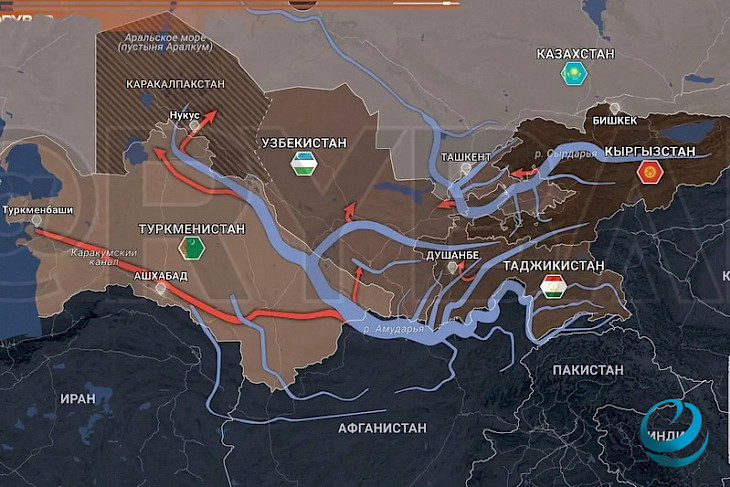The current authorities in Afghanistan - the Taliban - began the construction of the irrigation canal "Kosh-Tepe" in March 2022.
The stated goal is to irrigate lands in the provinces of Balkh, Jowzjan, and Faryab, creating job opportunities for 250,000 people.
The 285-kilometer project is planned to be completed by 2028. The construction pace is impressive - the first 108-kilometer phase was operational last year, eight months ahead of schedule, an article on Eurasiatoday.ru says.
The cost of "Kosh-Tepe" is estimated at $700 million. Initially, funding was supposed to come from the Afghan budget. However, it has recently been revealed that the U.S. Agency for International Development (USAID) is providing $600 million, as reported by "Vesti.uz."
This is quite unusual for the Americans, as they typically do not directly invest funds in infrastructure projects abroad from the state budget. Private Western companies also primarily pursue oil, minerals, and other valuable resources, according to the portal.
The question arises: why is the U.S. suddenly showing concern for Afghanistan's water resources, a country they initially bombed and then occupied for 20 years?
A Hook for Kabul and War for Central Asia
According to Alexander Alexeev, an expert from the Center for International and Socio-Political Studies "Caspian-Eurasia," a "water war" scenario is unfolding here, capable of plunging the entire Central Asian region, suffering from a lack of irrigation water, into chaos.
Frictions between neighboring states on this issue are inevitable. By adding fuel to the fire, one can provoke a real conflagration.
Washington openly declares its desire to detach Central Asia from Russia and China, using promises but without real economic cooperation.
By investing in Kosh-Tepe, the West is effectively "hooking" the current regime in Kabul while simultaneously creating problems and threats to neighbors, potentially leading to military conflicts. Then, the U.S. allegedly comes to the "rescue," as it did in 2001.
After the completion of the project, Uzbekistan and Turkmenistan will annually lose 10 billion cubic meters of water from the Amu Darya. This will significantly alter the water balance in the region.
The Taliban currently feel confident with U.S. support and bluntly refuse negotiations, asserting rights to a significant share of the Amu Darya flow.
Additionally, the Taliban intend to build the Dasht-e-Jun hydroelectric complex, which will take the majority of the summer flow of the Panj River. This way, they will secure the lion's share of water from transboundary rivers in northern Afghanistan.
Water Crisis in Central Asia
Experts warn that putting Kosh-Tepe into operation will inevitably cause an ecological and water crisis in neighboring countries.
Uzbekistan, Tajikistan, and Turkmenistan will have to take decisive measures to protect millions of people and their economy dependent on irrigation agriculture.
It is advisable for Central Asian countries to develop a common position on Kosh-Tepe as soon as possible and firmly insist on protecting their interests in negotiations with the Taliban.
Utilizing the positive experience of past water cooperation in the region is crucial. The key task is to prevent the escalation of tension and conflicts provoked by the struggle for water resources.
Russia, with its powerful scientific complex in water management, regional influence, and experience in conducting complex negotiations, is likely to provide assistance.
Source: Eurasiatoday.ru
CentralasianLIGHT.org
January 26, 2024

